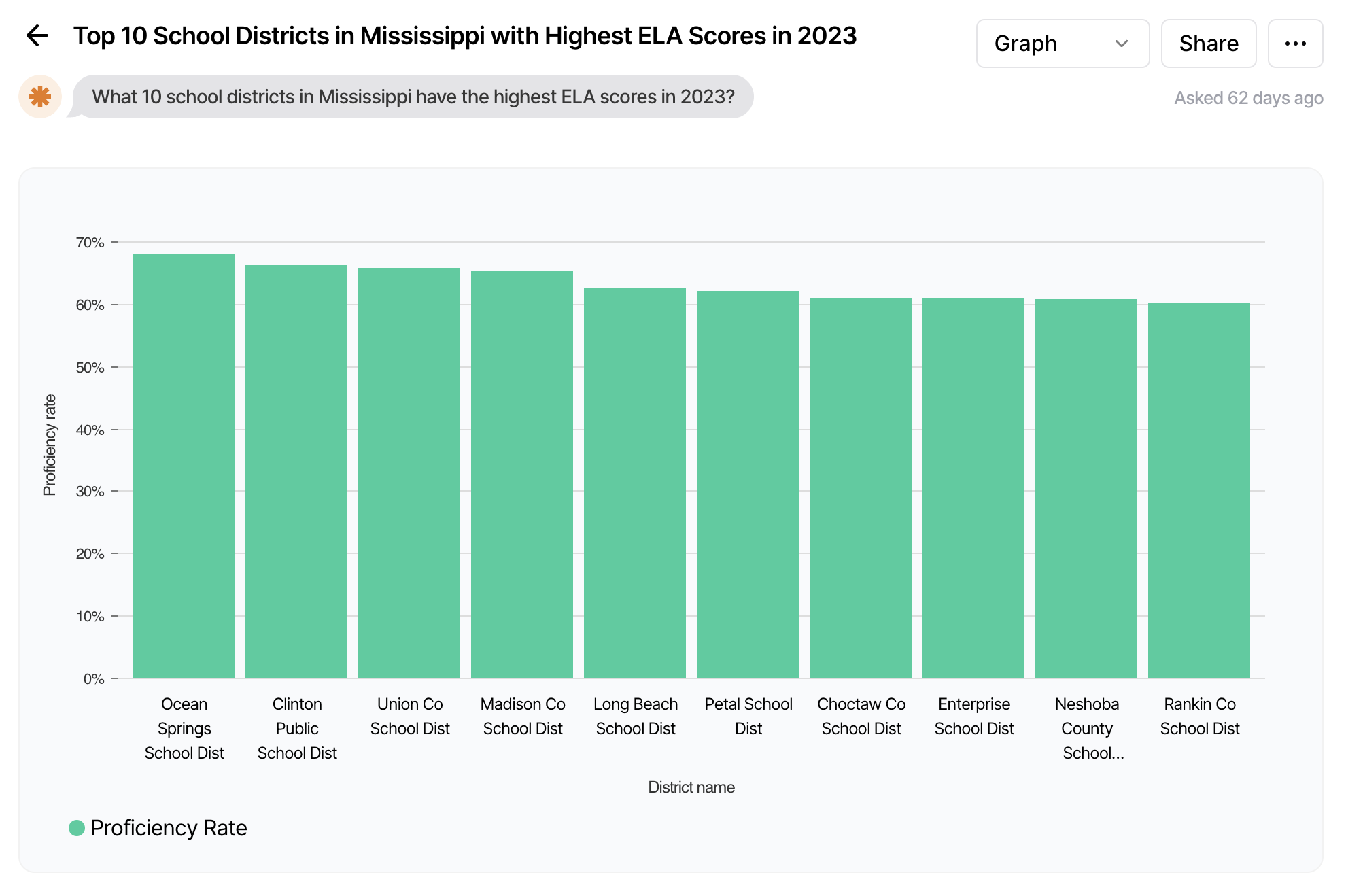During this summer, a team of students from MIT embarked on a journey to the sou …
Introducing a New AI Tool: Easily Compare Student Test Scores in All 50 States
Emma Wordsmith

A new tool powered by artificial intelligence (AI) is offering a convenient way for parents, researchers, and policymakers to access state assessment data. This online tool aims to democratize school performance data by providing up-to-date academic information for all 50 states and the District of Columbia. It comes at a critical time when schools across the nation are grappling with the challenges posed by the COVID-19 pandemic.
Scheduled to launch today, the user-friendly website features a simple interface that allows users to search for math and English language arts data in grades 3-8 using conversational language, similar to a search engine or AI chatbot. It currently does not include high school-level data.
For example, a superintendent curious about math scores for English learners in her state can simply ask, “Show me math scores over time for English learners and non-English learners in Minnesota.” Moving to a new town and want to know the top 10 school districts in Mississippi with the highest ELA scores in 2023? Just ask.
Similarly, parents relocating to a new town or neighborhood can inquire about data for individual schools in most cases.
The project, known as Zelma, is a partnership between Brown University and Novy, the company responsible for developing the site’s AI functionality.

The tool is inspired by data dashboards like the federal government’s EdFacts initiative, which collects statewide assessment information. However, Zelma takes it further by offering more up-to-date analyses of state, district, and even school-level data. It also includes privacy protections to safeguard individual student scores in small districts and schools.
Within each state, users can further analyze data by race, ethnicity, economic level, and other indicators.
The AI aspect of the tool allows users to search the database using plain language. Emily Oster, a prominent economist who specializes in parenting, led the development of the tool. She believes it has a wide range of potential users, from parents and school board members to state policymakers and journalists.

Oster said the tool is so user-friendly that a school board member can easily pull up test results for each school in the district during a board meeting using their phone.
Policymakers will also benefit from the tool as it eliminates the need for time-consuming requests to access state assessment data. Oster stated, “If you want quick insights, this tool makes it easier.”
One of the most impactful features of Zelma is the ability to explore individual states, districts, and schools to identify which schools and populations are excelling. This feature has significant implications for shaping education policies.
Reliance on ‘plain language’
Clare Halloran, the Project Manager, explained that Zelma was borne out of the frustration Brown researchers faced while attempting to compare COVID recovery data across states. She highlighted the challenges of finding and accessing information, particularly where information was missing.

Even states with data portals and dashboards do not provide a seamless experience due to limitations such as clunky dropdown menus that only allow one indicator at a time. Zelma aims to make data more accessible by enabling users to search using plain language and multiple variables.
According to Halloran, Zelma will make vast amounts of data accessible to a broader audience and empower the average person to explore it on a deeper level.
All queries made on the tool are public, although authors remain anonymous. The site resembles a Twitter-like feed, displaying the most recent queries at the top to allow users to see what others are interested in learning.
In addition, Zelma provides “notable events” warnings that advise users not to draw definitive conclusions from proficiency levels in specific cases. For example, the tool cautions against making comparisons in states and districts where new assessments are being administered or where lower participation rates are observed.
While Zelma can provide limited comparisons between states, it is not designed for comprehensive state-to-state comparisons. Users will receive a warning when attempting to compare states, indicating that different assessments are administered, and proficiency rates are not comparable across states.

Despite the user-friendly interface, the effectiveness of the site depends on the quality of the underlying data, which can vary significantly across states. For example, Minnesota provides test scores dating back to the late 1990s, while Rhode Island only has data from 2018 onwards.
Additionally, due to the COVID-19 pandemic, very few states reported test scores in 2020 and 2021 as the U.S. Department of Education granted waivers for standardized testing.
Paul Peterson, the director of the Program on Education Policy and Governance at Harvard University’s Kennedy School, appreciates the ability to easily access and analyze updated testing data from various states. He believes that any improvement in transparency is beneficial.
The 74.


